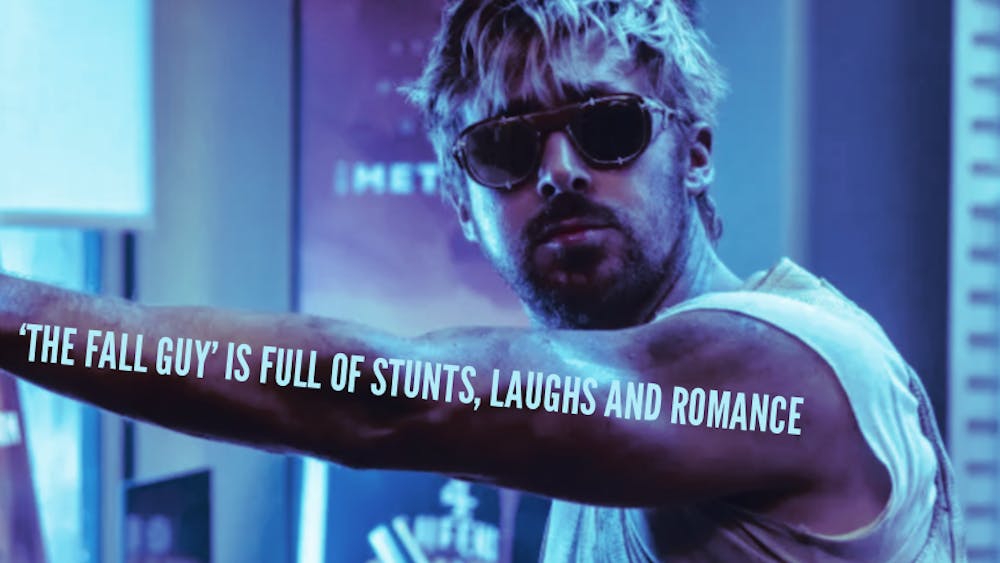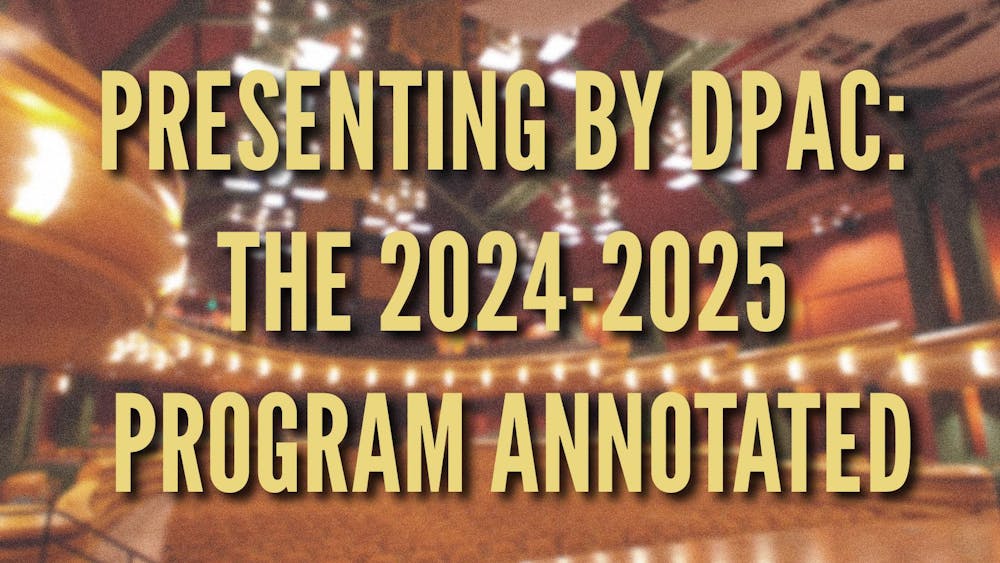Last summer when Pasquerilla East Music Company (PEMCo.) picked out its February show, they had some idea that the content of "Parade" would spark some controversy. It takes place in 1913 Atlanta, and depicts a lynch mob going after an innocent outsider from New York.
"The play has lots of dichotomy — North versus South, Jew versus Christian, agrarian versus industry, and white versus black," said senior Elizabeth Kuhn, one of the show's producers.

But when it came time to cast the show in the fall, those themes were not a problem so much as the cast list — PEMCo. had difficulty finding enough students to audition for the African-American roles.
Kuhn, senior co-producer Kelly Rice and the show's director, Kevin Stein, went to Multicultural Student Programs and Services (MSPS) to reach out to the minority student groups on campus. With help from Toby Blake, the assistant director of MSPS, the parts were filled quickly.
But some student leaders with MSPS objected to the secondary roles reserved for African-American actors in "Parade."
"Some in the African-American community, who aren't necessarily involved in musical theater, see that the blacks in the show are on the chain gang or even being implicated as a murderer. There's this feeling that too many times African-Americans are secondary characters," Blake said.
"So the appropriate response, it was decided from the group from PEMCo. and the group of some of the students who had some of the worries, was to get together and come up with something that was going to the last a little bit longer than just ‘Parade,'" Blake said.
The students helped develop a workshop that would deal with the presentation of race in performing arts. Participants will see the same scene performed several times by actors from different racial backgrounds, and then discuss how the against-type casting changed their reaction to the scene. Beyond an academic goal, Blake and the student leaders hope this will help a larger, more diverse talent pool get exposed to the opportunities in performing arts at Notre Dame.

"This is so play selections will never again be met with criticisms," Blake said in an e-mail to The Observer.
Junior Rachael Banks, president of the Notre Dame chapter of the NAACP, was one of the student leaders involved in the formation of the workshop.
"It's really important that Notre Dame works to promote the spirit of inclusion that everybody talks about but that they don't really see in action," Banks said.
"PEMCo. didn't come with the purpose of breaking down barriers but that's what it has done. We came up with a really, really constructive way to address the problem to get everybody — minorities, students, faculty, everybody — on board to tackle the problem," Banks said.
Blake and Banks both said "Parade" was not an extreme example, but another part of a pattern.
The last time there was serious discussion about race and performing arts was with PEMCo's performance of "Ragtime" in 2007. By the numbers, "Ragtime" had a diverse cast, but it raised ire because of its controversial subject matter: a racially-charged story, with violent black characters and repeated use of the "n" word in the script.
Class of 2009 graduate Kyle Carter played Coalhouse — one of the show's leads and a black character — in "Ragtime."
"'Ragtime' was actual turmoil. 'Ragtime' was people legitimately trying to get the show shut down," Carter said.
To address the controversy, PEMCo. hosted a panel discussion about the show. It brought heightened debate, Carter said, but not much progress.
"I think [the workshop] will work better because it's the second time around. That first panel was just rough and raw because it was the first time anyone had ever done anything like that … That, I think, is where the growth has to come," Carter said.
"I think that this isn't a bad thing, I think this is great, because it's even more of a serious issue. People who were around for ‘Ragtime' are saying, ‘Okay, we remember what happened, we're seeing what's happening now, let's make this forum [the workshop] the best that it can possibly be and get literally the best dialogue possible with regard to diversity in theater programs on campus."
Senior D.C. Smith, who plays several of the African-American roles in "Parade," joined PEMCo. this year and said a play like this, because of its basis in a real historical event, needs to be true to the script.
"If the white person being the lead is necessary — I feel like you have to do what's best to the play," Smith said.
Senior Erdina Francillon is the president of Shades of Ebony, and was one of the student leaders that worked with PEMCo. She said she understood the hesitation to "break the mold" in any play with roles not written for diverse actors, but she feels that "Parade" was a poor choice of musical to perform during Black History Month.
"People are missing the point that minorities don't always want to play these stereotypical roles," Francillon said.
Francillon said she hopes that the workshop will give PEMCo. an audience of more diverse students while also shaking up preconceptions about racial typecasting.
"These communities exist on campus — they're performing communities … It's the recruiting message [from PEMCo.] that isn't effective," Francillon said.
"You can't sit around and say ‘our club is not diverse because they don't come to us.' You have to ask yourself why aren't they interested. You can't do the same thing every year and expect things to change."
She pointed to her racially diverse Miami high school where she performed in a group similar to PEMCo.
"We did ‘Fiddler on the Roof' — a show where every character is white — with people from all backgrounds. If you say it can't be done, you're not trying hard enough," Francillon said.
But Carter said he believes the group has tried, and succeeded, in casting minority students in significant roles. He has been in nine PEMCo. productions (and played two leads), but in only two of those shows — "Ragtime" and "Parade" — was casting constrained to race, he said.
"It's disconcerting to me that this is the only time that people wanted to talk about it. Where was this in ‘Kiss Me Kate,' when I was the lead in a show that had nothing to with me being black?" Carter asked.
Kelly Rice, the show's co-producer and Carter's former co-star in "Kiss Me Kate," said PEMCo's tight resources are also a hindrance.
"Groups that are student theater groups don't have the reach, or the advertising capabilities or the time to specifically go up to every single minority group and say ‘Hey, we think this is great for you,'" Rice said.
"We have to do the broad advertising and hope we get enough people, and in the past we have. We've had great talent, we always find it, and if there is a specific role that we need to fill, then we take the time to find it."
For students like D.C. Smith, who are involved in both PEMCo. and performance groups in the black community, the controversy surrounding "Parade" has been difficult.
"It's kind of sad to see these two great groups that I'm a part of, because of the play selection, be at odds," Smith said.
He said he hopes Monday's workshop can help bridge the gap.
"If there would be a point where these two groups could come together, it would broaden the options for PEMCo.," Smith said.
"I'm all for diversifying it, because I think all it can do is make it better."
The workshop entitled, "Casting: Breaking the Mold" with special guest Keith Byron Kirk,
Broadway actor and former star of "Parade," is Monday, February 15th from 6:00 pm – 7:30 pm in DeBartolo 101.












